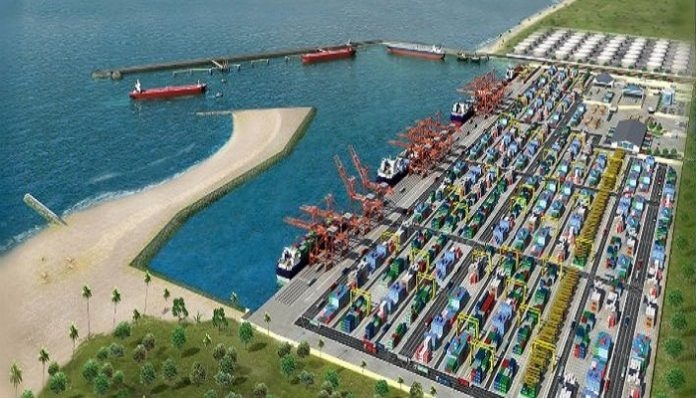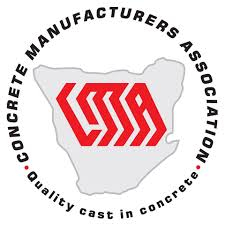

Promoter of Lekki Deep Seaport, Lekki Port LFTZ Enterprise (LPLE), has signed a Memorandum of Understanding with CMA CGM Group, a French container shipping giant to operate the future container terminal of the seaport.
Recently, Nigeria President Muhammadu Buhari flagged-off the construction of the US $1.5bn Lekki Deep Seaport, the first deep seaport in the country. On completion, the port will have one dry bulk berth, three liquid berths, two container berths, 1,200-m-long quay and 13 quay cranes which will have a capacity of 2.5 million TEUs, with 16-meter depth.
CMA CGM now the official terminal operator will be responsible for operations, maintenance and marketing of the container terminal at Lekki Deep Sea Port through its subsidiary CMA Terminals.
Navin Nahata, Lekki Port LFTZ Enterprise CEO said:“We are excited about this development because CMA Terminals is a world class port operator and can be relied upon to provide international port standard delivery services at par with most modern ports around the world to the Nigerian port customers.”
As Nigeria’s first deep sea port, Lekki Port represents a strategic choice for the CMA CGM Group. Lekki Port will bring to Nigeria larger container ships from Asia and Europe to better serve the customers as well as pursuing the commitment to the development of the entire region.
When completed, Lekki Port is expected to ease the congestion at the port of Lagos. Nonetheless, the project is fully in line with the CMA CGM Group’s development in the region. Additionally, Lekki Port’s container terminal will also allow the Group to develop its presence into West Africa’s first consumer market as well as serving as a transshipment hub, especially to the neighboring countries such as Togo and Benin.
Known as the second largest shipping company in Africa, CMA CGM Group has assured the Nigerian government of its fully commitment in developing the port infrastructure. The Group has a network of 75 agencies and nearly 1,400 experts particularly in sub-Saharan Africa
More news
- CELEBRATING EXCELLENCE IN THE RESIDENTIAL PROPERTY SECTOR
- PART 4: GIBS PANEL DISCUSSES INTEMEDIATE CITIES ROLE IN AFRICA’S DEVELOPMENT
- EXPOSED AGGREGATE PAVERS COMPLEMENT NEW LIFESTYLE CENTRE
- GIBS PANEL EXPLORES ROLE OF INTERMEDIATE CITIES IN SA’S DEVELOPMENT PART 3
- CITI-CON’S CONCRETE KNOWLEDGE SUCCESSFULLY DEPLOYED ON NEW LANDMARK DEVELOPMENT



